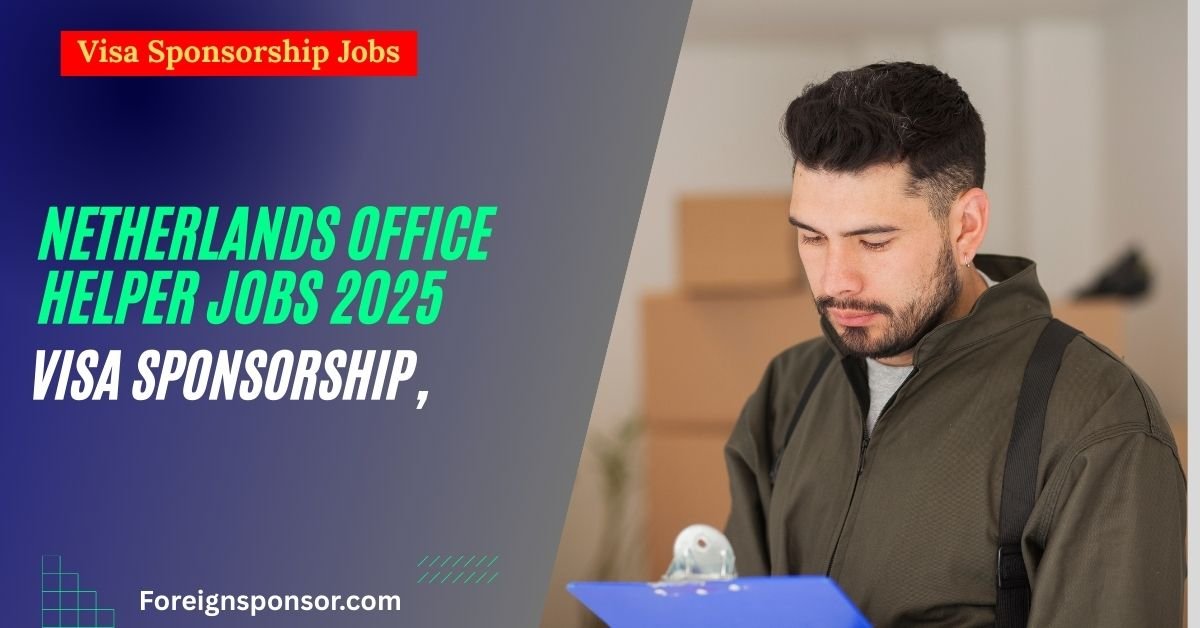The Netherlands hosts thousands of international companies across tech, logistics, finance, and creative industries. With hybrid work now standard, offices still need reliable people to keep things running: office helpers, admin assistants, receptionists, and back‑office coordinators. English is widely used in global teams (especially in Amsterdam, Rotterdam, The Hague, Utrecht, and Eindhoven), so English‑first roles do exist—though Dutch helps a lot.
Can office helper jobs come with visa sponsorship?
Yes, but it’s not common. Here’s the practical picture for non‑EU/EEA/Swiss citizens:
- Most office support roles don’t meet the “highly skilled migrant” salary thresholds, so that fast‑track route via a recognized sponsor usually isn’t available.
- The typical path is a Single Permit (GVVA: combined residence and work permit). The employer applies to the IND, with a labor market check by UWV. Employers must prove they couldn’t find someone in the EU first. That’s the hard part.
- Timelines: the legal decision period for a GVVA is up to 90 days; real‑world experiences are often 8–12 weeks.
- If your nationality needs an MVV (entry visa), you’ll pick it up at a Dutch embassy/consulate before arrival.
Who gets sponsored anyway? Multilingual admins in international HQs, NGO/embassy support roles, or candidates with niche systems skills (SAP, Salesforce, procurement). Graduates already in the Netherlands on an orientation year permit are more hireable. If you’re EU/EEA/Swiss, you don’t need a work permit.
Where to find legit openings (and how to filter)
Use these platforms and search phrases like “visa sponsorship,” “work permit support,” “relocation,” “English‑speaking,” “administrative assistant,” “office assistant,” “receptionist,” “back‑office.”
- LinkedIn Jobs (set location to Netherlands; filter by “English” and “onsite/hybrid”)
- Indeed.nl and Glassdoor (try “office assistant English Amsterdam visa”)
- IamExpat Jobs (English‑friendly roles)
- Undutchables, Adams Multilingual Recruitment, Blue Lynx (multilingual recruitment specialists)
- Expatica Jobs
- Nationale Vacaturebank, Randstad NL, Manpower, Adecco, Olympia, YoungCapital (agencies)
- Check the IND “Public Register of Recognised Sponsors” to spot employers used to immigration processes (helpful, even if you’ll use the GVVA route)
Skills and profile that get interviews
Hiring managers favor people who make the day flow. Show, don’t tell.
- Tools: Microsoft 365, Google Workspace, calendar/meeting coordination, travel bookings, expenses, invoicing basics; CRM (Salesforce), ERP (SAP) are big pluses.
- Tasks: front desk reception, vendor coordination, office supplies, onboarding support, event logistics, facilities tickets, basic HR/finance admin.
- Languages: strong English; basic Dutch (A2–B1) boosts your chances outside major expat hubs.
- Soft skills: service mindset, clear communication, prioritization, confidentiality, and “fix‑it” problem solving.
- Education: MBO‑3/4 or equivalent experience in administration is common in local postings.
Tip: quantify impact. “Managed 5 calendars, cut travel costs by 12%, onboarded 15 hires” beats a generic duties list.
Pay, benefits, and contracts to expect
Salary varies by city, company size, and scope:
- Typical gross monthly pay: €2,300–€3,200 (roughly €27k–€40k per year)
- Benefits often include:
- 8% holiday allowance
- ~25 vacation days
- Travel expense reimbursement
- Pension plan
- Laptop/phone, training budget
- Hybrid work options
- Contracts: many start as agency/temporary (uitzend) or fixed‑term; a Collective Labor Agreement (CAO) may define pay scales and overtime rules.
- Cost of living is higher in Amsterdam/Haarlem/Utrecht; some people commute from nearby towns to stretch their budget.
How sponsorship typically works (step‑by‑step)
- Offer and contract: employer issues a contract that meets Dutch employment and minimum wage rules.
- Application: employer submits a GVVA to the IND (UWV advises on the labor market check).
- MVV (if required): you collect an entry visa at a Dutch mission.
- Arrival: register at the municipality (get your BSN), pick up your residence card, complete any TB test if applicable.
- Start work: once your permit is active, you can begin. Expect the whole process to take a few months—plan accordingly.
Employers commonly cover application fees; clarify this upfront.
Make yourself sponsor‑worthy
- Prepare two CVs: one compact, Dutch‑style (1–2 pages) and one detailed. Lead with achievements and tools.
- Add a short, tailored cover letter (150–200 words) explaining your value and willingness to relocate.
- Take an A2–B1 Dutch course (even Duolingo + YouTube + Oefenen.nl helps). Note it on your CV.
- Target international firms, embassies/NGOs, and multilingual agencies; ask directly, “Do you support GVVA sponsorship?”
- Keep time zones in mind and be easy to schedule. If you can start within 60–90 days, say so.
- Collect references with contact info. Dutch employers check them.
Red flags and how to stay safe
- No legit employer asks you to pay for a work permit. Walk away.
- Vague contracts, Gmail addresses, or pressure to decide “today only” = risky.
- Verify companies on the Dutch Chamber of Commerce (KVK) and cross‑check the address and website.
- If they claim to be a recognized sponsor, confirm on the IND public register.



